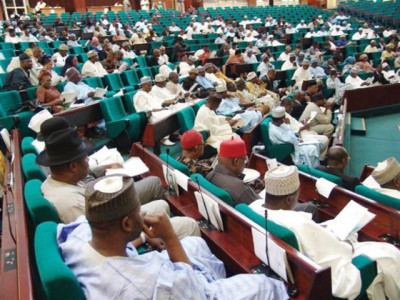
Here is some bad news for voluntary organisations, including churches and mosques involved in running social services like schools, hospitals and orphanages.
If they rely on foreign financial and material support for any of their interventions, the future is going to be made bleak, thanks to the House of Representatives. The House plans to make it mandatory for voluntary organisations to get approval from government before they can access and use ‘foreign financial and material contributions’ in Nigeria.
By the provisions in a bill before the House, voluntary organisations must first register with the Independent Corrupt Practices and Other Related Offences Commission (ICPC) before they can be considered to receive foreign funding. And for each financial or material assistance they expect to get from outside Nigeria, they must first apply for permission from the ICPC and may have to wait up to two months to get a response, positive or negative.
Known as a bill for an Act to ‘regulate the acceptance and utilisation of financial/material contribution of donor agencies for voluntary organisations’, the passage of this bill will surely exacerbate poverty in Nigeria in many ways.
It is no longer news that the Nigerian state has been unable or incapable to provide the basic needs of its citizens and many private interventions have helped address the problem. Some of these interventions are carried out by voluntary groups, which the bill defines very broadly to mean ‘an association of individuals whether incorporated or not’. This definition is too simplistic as to cover town unions, cooperative societies, old students’ associations, churches, mosques, non-governmental organisations, trade unions, professional bodies and even loose groupings like ‘committee of friends’ for social events like weddings.
Churches and mosques would be a major victim of this proposed law. For those groups with headquarters in Nigeria it means that donations and contributions coming from their members or branches outside the country cannot be received unless the ICPC approves, just like religious groups cannot accept funds from their parent bodies or richer international partners for the advancement of their faith or even for the establishment or supporting of social causes like schools and homes for the less-privileged.
The bill, if it ever becomes law, which we pray it doesn’t, would hurt many civil society groups like non-governmental organisations (NGOs) involved in different forms of development work. Many of these organisations regularly raise funds internationally, sometimes from ordinary citizens in developed countries who give standing instructions to their banks to pay as little as $15 monthly for development in countries of the South. It is inconceivable how the Nigerian organisations would have to apply each month for approval to receive such payments.
The effect of this law would be felt in very poor communities which have benefited from the activities of these NGOs and would be at risk of limited or no support again.
Consider other voluntary organisations like Lions and Rotary Clubs, whose international foundations regularly support major humanitarian interventions locally. With this bill becoming law, access to such money may be denied or delayed in such a way as to render the intervention ineffective. While the Lions Clubs International Foundation supports sight-related interventions including river blindness eradication in Nigeria, Rotary International is known for its global support to eradicate polio. These service organisations and non-governmental organisations like ActionAid, Oxfam and Christian Aid also make rapid responses to emergencies in Nigeria.
What it means is that all these organisations would have to wait for the snail speed wheel of administration for which government agencies, no less an already overstretched ICPC, are known for before accessing funds from their international partners to intervene.
At this point, it is unclear what the legislature hopes to achieve with this proposed law. It is difficult to see the lacuna in our body of laws that this bill seeks to fill. Neither is there a mischief requiring a law like this proposal to correct. If the idea is to block loopholes for money laundering or terrorism, there are already laws in place to address those. These include the Banks and other Financial Institutions Act, the Companies and Allied Matters Act, the Terrorism Prevention Act, the Central Bank Act and the Money Laundering (Prohibition) Act.
Under the above laws, monies going through the banks are traceable by the authorities and since the only way by which the voluntary organisations receive money from abroad is through the banks, the information is already available to the state. What is more, many voluntary organisations are already registered with the Corporate Affairs Commission and on that score, are under obligation to file their annual returns which show their monetary transactions. They are also registered with the Special Control Unit against Money Laundering (SCUML).
Clearly, this present bill is unnecessary and a waste of public time and resources to even consider it. Fortunately, the House has fixed Wednesday July 2 for public hearing to discuss this. Citizens and voluntary organisations therefore have an opportunity to tell the federal legislators to perish their idea and bury this bill.
Mr. Effanga is Governance Programmes Manager with ActionAid Nigeria and is reachable on obo.effanga@gmail.com.
No comments:
Post a Comment